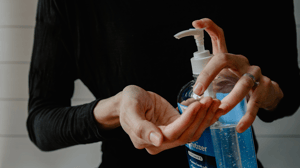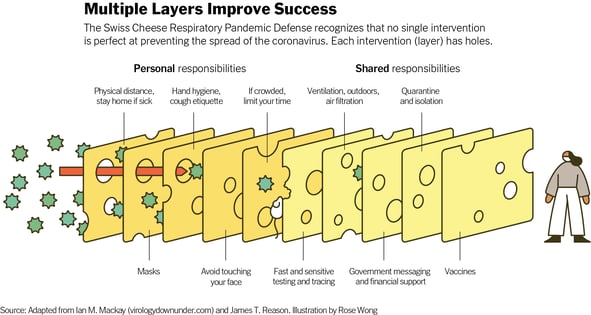
Universal Best Practices to Replace Safer at Home Guidelines
Throughout the pandemic, NH businesses have been adhering to the "Safer at Home 2.0" playbook that issued by the State of New Hampshire. On May 7th, this document will be replaced by the "Universal Best Practices" guide which was released on April 29th.
PARTNER SPOTLIGHT
Dealer Management System, Computer Technology, Media/Advertising, Automotive Auction, F & I/Aftermarket Products, Automotive Technology Training & Compliance
 A NHADA Gold PARTNER
A NHADA Gold PARTNERComputer Technology, Automotive Shop Equipment, Environmental Services
 A NHADA Platinum PARTNER
A NHADA Platinum PARTNERF & I/Aftermarket Products, Automotive Technology Training & Compliance, Environmental Services
.png?width=150&name=corp_logo_horz_on_light_with_trademark_symbol_1200w%20(002).png) A NHADA Diamond PARTNER
A NHADA Diamond PARTNERThe previous document was very detailed and spelled out how businesses, organizations, and individuals in the state were "required" to adhere to certain safety measures to help slow the spread of COVID-19. The new 10 page document has altered its wording and favors language like “encouraged, “should consider," and “recommended." The Universal Best Practices offers recommendations but also clearly says it does not preclude businesses for taking additional precautions.
Cheese? Cheese.
The focus is now the continued importance of layered protective measures. The “Swiss Cheese model” is noted in the Universal Best Practices as a way to do this.
What does cheese have to do with controlling a pandemic? Well it’s a pretty good analogy. It recognizes that no single intervention is perfect in preventing spread; but when you layer them all together there is a better chance we can slow the spread. Layering masks, vaccines, social distancing, quarantine, and isolation when appropriate as well as other measures make a stronger defense.
Best Practices
Planning and Communication
This portion stresses the importance of developing plans and workplace policies focused on preventing the spread of COVID-19. Communication with staff, visitors, and customers is crucial so that you can educate them on what your internal policies will be in regards to COVID-19 safety and so that they know what is expected of them as a customer. Some questions you will want to answer include are:
- Will you be requiring masks?
- What are your screening plans?
- How will you handle visitors and customers in regards to COVID-19 precautions?
- What will be mandatory and what will be encouraged?
Vaccinations
Are you encouraging your employees to become vaccinated now that the vaccine is available to nearly all age groups? If so are you considering paid time off or other incentives so your employees can get vaccinated.
Identifying and Excluding People with COVID-19
The document says employers should consider active screening or daily self attestation of staff before the work day for any signs, symptoms, or risk factors of COVID-19. A process should be established where employees, visitors and customers should be educated on staying home if they exhibit any signs of COVID-19. Consideration is encouraged for policies that are supportive of employees that need to stay home due to COVID-19.
Testing
This remains a very important measure to determine who has COVID-19 and to keep them from spreading it to others. Any person with symptoms should seek testing using a PCR or antigen based test. Any person identified as a close contact should be tested and self quarantine per the NH DPHS guidance.
Social / Physical Distancing
COVID-19 is spread through prolonged contact to an infected person's droplets that are exhaled with breathing and talking. The chance that these spread over longer distances is possible as well. This risk can be minimized with physical distancing, mask use, and improvements in building/room ventilation. The best practices go on to further explain suggestions for physical and social distancing in the workplace.
Mask Usage
Throughout the pandemic mask use has been a very important part of controlling the spread of COVID-19. Although no longer mandated; mask use is still encouraged especially when staff and customers are within 6 feet of each other for 10 minutes or more. Other barriers and adaptations are suggested. Staff and customers can still be asked to wear masks while in your place of business as the choice is up to the business.
Cohorting and Limiting Group Sizes
This section goes over the process of creating smaller groups of individuals in the workplace or organizations. This might not be possible for every business but when possible it limits the number of people who could be exposed if an exposure occurs and may allow for a smaller group to have a more relaxed approach to restrictions.
Modifying Layouts and Processes
Processes in a business or organization should be modified to allow the layers of mitigation and protection. This section goes over the flow of customers, physical barriers, modification of employee schedules as well as other suggestions to modify the workplace in order to decrease the risk of COVID-19.
Hand Hygiene
This is still noted to be an important layer in the system to fight against COVID-19.
Cleaning Disinfecting and Avoiding Shared Objects
This section goes over in detail cleaning and stresses staff should be trained in cleaning and disinfecting in the workplace and reviews the CDC recommendations.
Improving Building Room and Space Ventilation
Employers are encouraged to evaluate their ventilation systems.
Public Health Contact Tracing, Isolation and Quarantine
This area should be noted as the most important with the biggest change. COVID-19 exposures at businesses and organizations should be promptly reported to NH DHHS DPHS bureau of Infectious Disease Control at 603-271-4496. Doing so is a requirement under NH RSA 141 – C.
As you will see as you review the Universal Best Practices the information has not changed much; we still know what we need to do to play our part in the fight against COVID-19. Starting May 7th, it'll be up to the business or organization to do what is suggested or not. We have been at this fight for over a year now; we know what the right thing to do is; so why stop doing it?
NHADA will continue to do our part as an employer to keep our staff and visitors safe and we encourage our members and partners to do the same.NHADA continues to keep up on the latest COVID-19 information and is here for you as a resource. Please reach out with any questions by calling 800-852-3372 or emailing Marta Silakka.




















.png?width=150&name=Ally_Final%20Logos%20and%20Pairings_11.14.2018-01%20(2).png)


-2.png?width=150&name=Wipfli%20Logo%20Blue%20RGB%20(1)-2.png)


.jpg?width=150&name=NHADA_Partner_FTR_Img_NHADA_Insurance%20(1).jpg)


.jpg?width=150&name=NHADA_Partner_FTR_Img_JMA(1).jpg)


